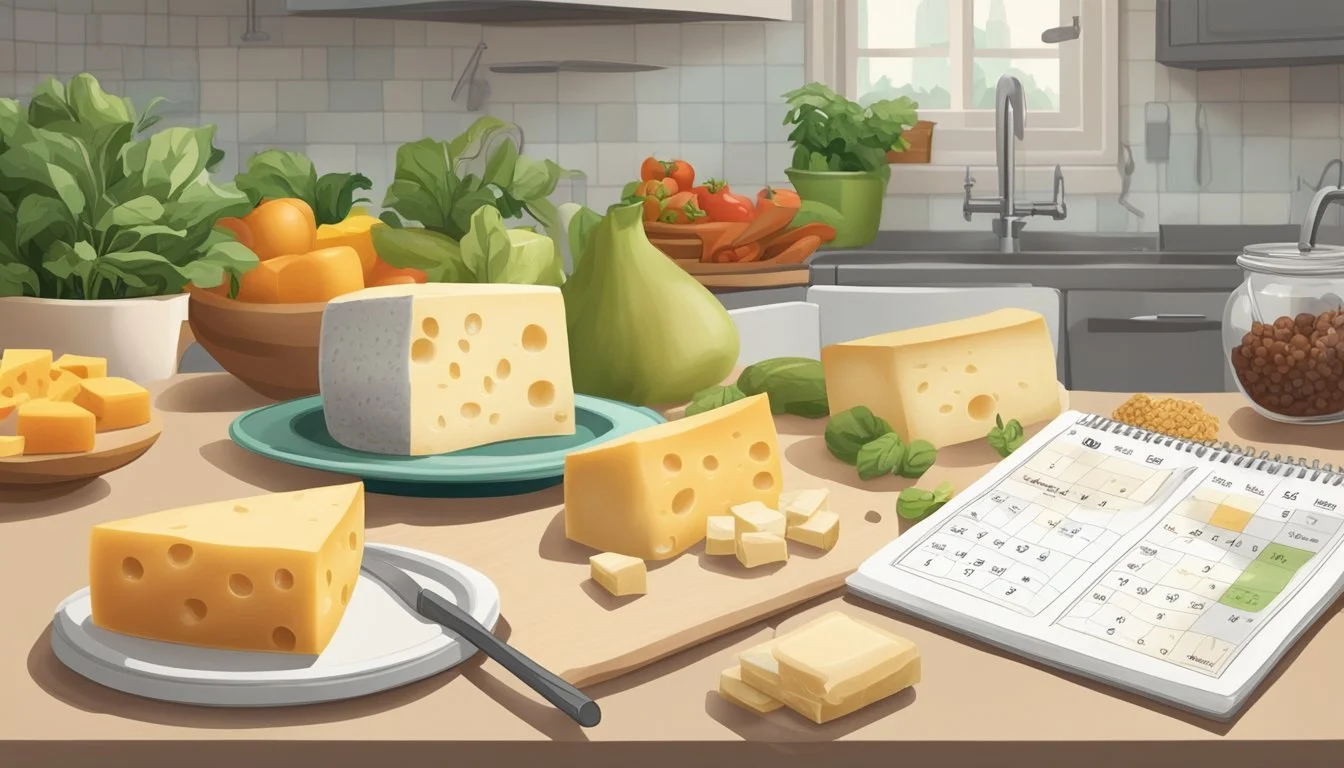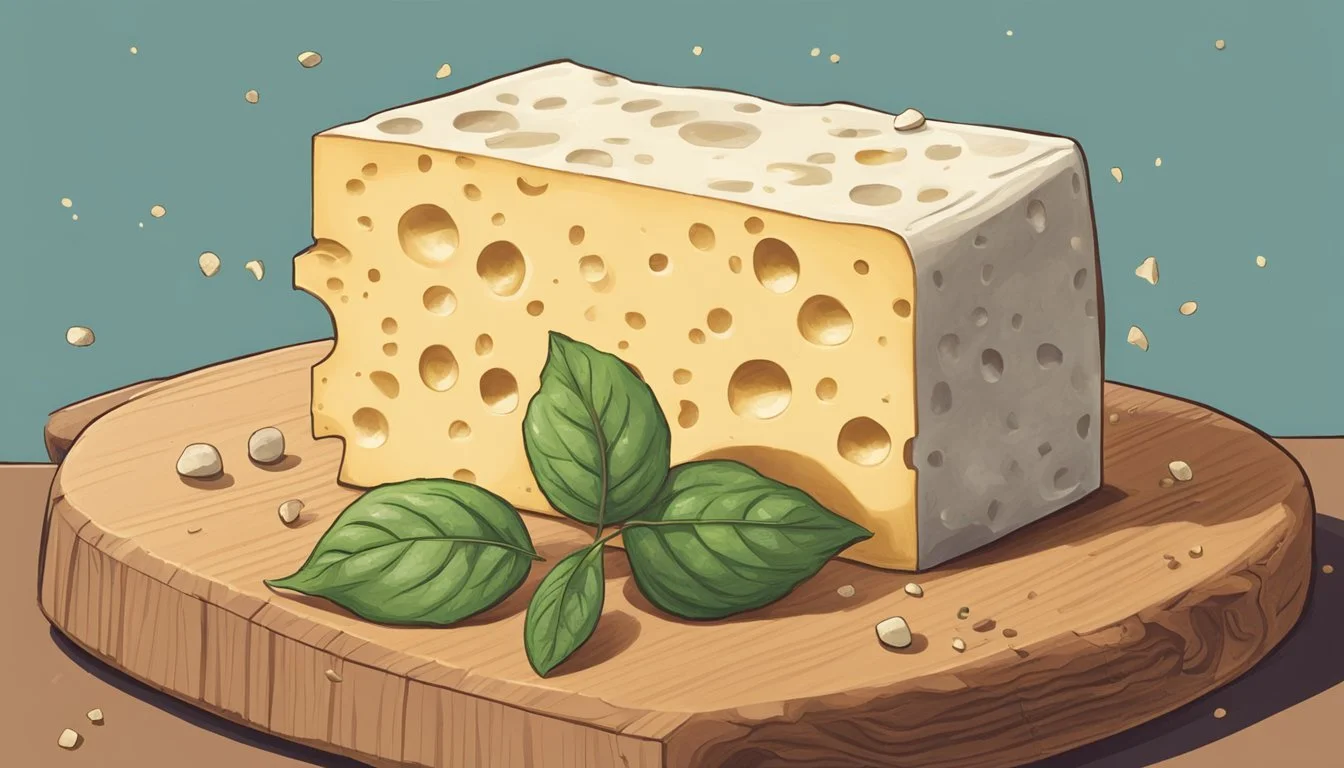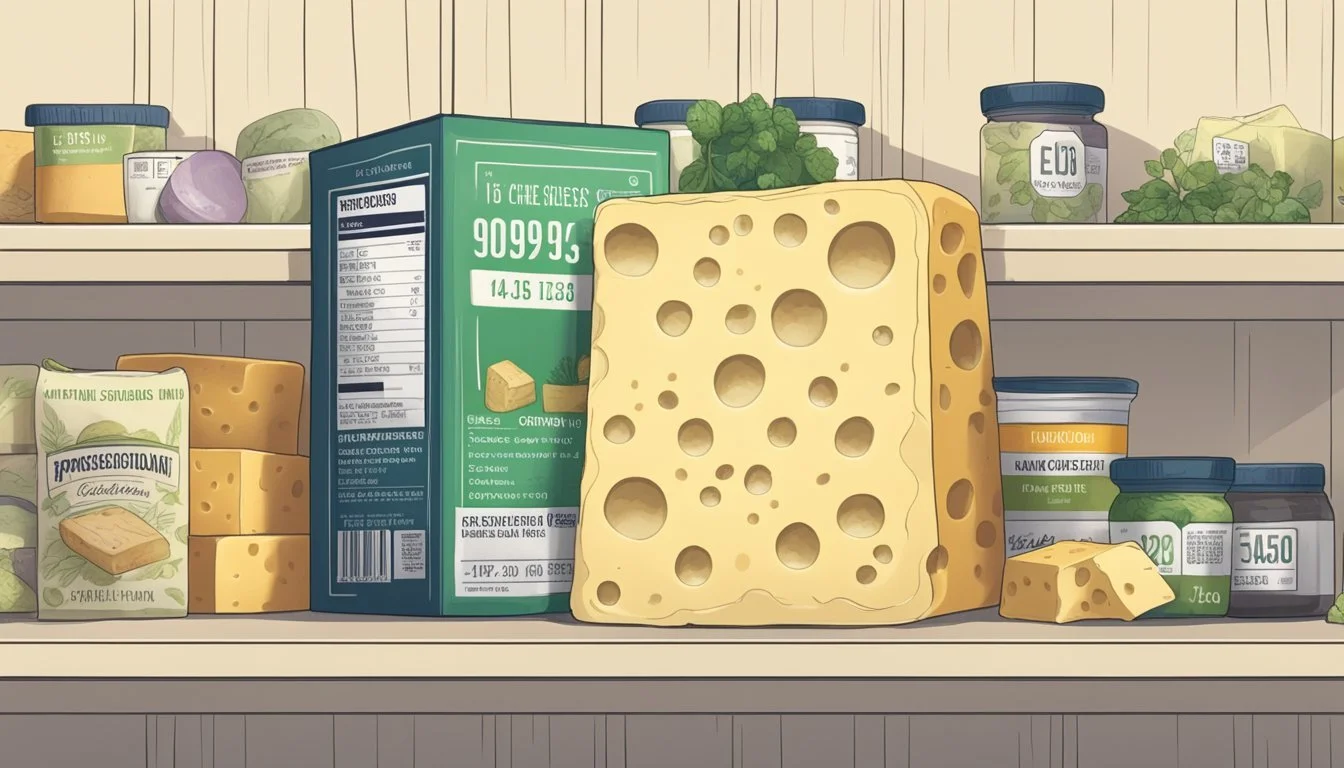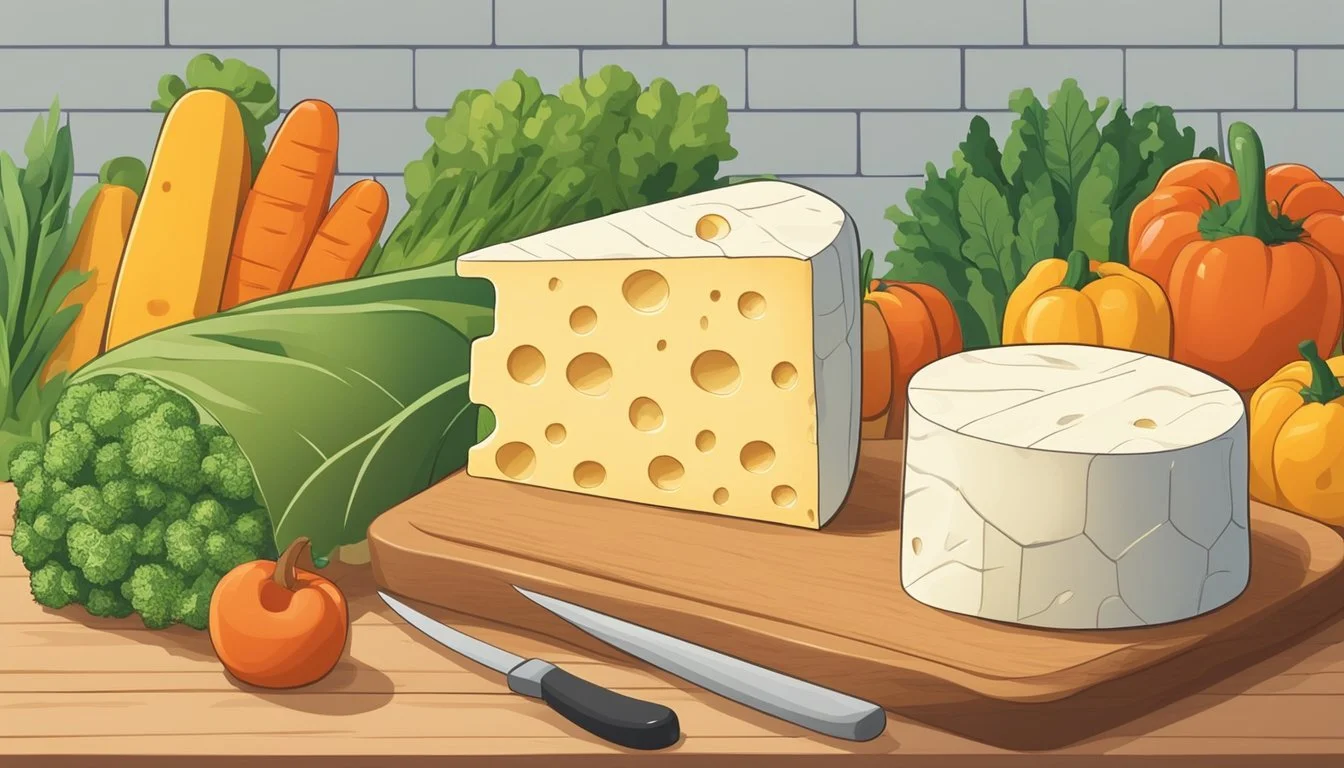Does Plant-Based Cheese Go Bad?
Understanding Shelf Life and Storage Tips
Plant-based cheese, also known as vegan or dairy-free cheese, is gaining popularity among those avoiding animal products. Many wonder if this alternative to traditional cheese goes bad. Yes, plant-based cheese does go bad, much like traditional dairy cheese.
The shelf life of vegan cheese can vary significantly depending on the type and brand. Spreadable cheeses like vegan cream cheese or ricotta typically last for 1-2 weeks when stored properly. Firmer varieties, such as vegan cheddar, might last a little longer but can still spoil over time.
Visual cues and textures are key indicators of spoilage. Dry patches, small holes, or discoloration in the cheese are signs that it has gone bad and should be discarded. Ensuring proper storage, such as keeping it refrigerated and sealed, can help extend its freshness.
Understanding Plant-Based Cheese
Plant-based cheese, often made from ingredients like nuts, soy, and coconut oil, serves as a dairy-free alternative to traditional cheese. This section explores the composition and types of plant-based cheese, and how they compare to dairy cheese.
Composition and Types
Plant-based cheese can be crafted from a variety of ingredients. Common bases include nuts such as cashews and almonds, soy, and coconut oil. Nutritional yeast is frequently added to enhance flavor, creating a rich umami taste that appeals to many on a vegan lifestyle.
There are different types of plant-based cheeses, mirroring their dairy counterparts. Examples include spreadable cheeses like vegan cream cheese, firm cheeses like cheddar, and melting cheeses suitable for pizzas and sandwiches. These variations allow for versatility, catering to a range of recipes and dietary needs.
Comparison with Dairy Cheese
When comparing plant-based cheese to dairy cheese, key differences lie in their ingredients and nutritional profiles. Plant-based cheeses do not contain animal proteins or lactose, making them suitable for those with lactose intolerance or following a vegan or plant-based diet.
In terms of texture and flavor, plant-based cheese may offer a different experience. While some may lack the exact creaminess or meltability of dairy cheese, advancements in culinary techniques have significantly improved these aspects. For example, cashew-based cheeses can achieve a creamy texture, while coconut oil often helps with melting properties.
Overall, plant-based cheeses present a healthier and ethical choice, free from the carcinogenic risks associated with animal proteins. This makes them an appealing alternative for consumers seeking healthier, ethical, and environmentally friendly options in their diet.
Shelf Life and Spoilage
Understanding how quickly plant-based cheese can go bad is essential. Factors like moisture content, storage methods, and expiration dates play key roles in determining the freshness and safety of vegan cheese.
Factors Influencing Spoilage
Moisture content greatly impacts the shelf life of vegan cheese. Softer cheeses, like vegan cream cheese or ricotta, generally spoil faster due to higher moisture levels.
Temperature is critical in preserving plant-based cheese. Always refrigerate to slow down bacterial growth and maintain quality. High temperatures can cause spoilage more quickly.
Preservatives may extend shelf life. Plant-based cheeses with natural or added preservatives last longer, while those without spoil faster.
Humidity also affects spoilage. High humidity can promote mold growth, while low humidity can dry out the cheese, making it inedible.
Identifying Spoiled Plant-Based Cheese
Appearance is the first indicator. Look for discolouration, mold, or unusual textures. Spoiled cheese might have small holes or a waxy outer layer.
Smell is another clue. A sour or rancid odor suggests bacterial contamination. Fresh vegan cheese usually has a milder scent.
Texture changes also signal spoilage. Vegan cheese should feel consistent with its type. Firm cheeses should remain solid, while soft cheeses should be creamy, not watery.
Freshness can rapidly decline past the recommended storage period. Labels often include instructions on storage to help maintain quality.
Expiration and Best Before Date
Expiration dates are crucial. They indicate the last safe day to consume the product. Beyond this date, spoilage risk increases dramatically.
Best before dates provide guidance on peak quality. Consuming plant-based cheese after this date means it might not have the best taste or texture, but it could still be safe to eat for a short period.
Label information usually includes both expiration and best before dates. Following these can help avoid consuming spoiled cheese.
Storage instructions on the label should be followed to maximize shelf life. Proper storage conditions are key to keeping vegan cheese fresh and safe to eat.
By correctly managing these factors, you can extend the shelf life and minimize the risk of spoilage.
Proper Storage Techniques
Storing plant-based cheese correctly is essential to maintain its quality and extend its shelf life. Key points to consider include refrigeration, freezing, and preventing contamination.
Refrigeration and Freezing
Plant-based cheese should generally be stored in the refrigerator. The fridge temperature should be set between 35°F and 40°F (about 1.5°C and 4.5°C). It's important to keep the cheese in airtight containers to prevent moisture from causing spoilage and to avoid odors from other foods.
Freezing is another option for extending the shelf life of plant-based cheese. Most types can be frozen for up to 3 months. When freezing, it is best to wrap the cheese tightly in plastic wrap or foil, then place it in a freezer-safe bag or container. Labeling the package with the date helps track freshness.
Preventing Contamination
To keep plant-based cheese fresh, preventing contamination is crucial. Always use clean utensils when handling the cheese, and avoid direct contact with hands to reduce the risk of transferring bacteria.
After opening, rewrap the cheese carefully in new plastic wrap or transfer it to an airtight container to minimize exposure to air and moisture. Store it on a dry shelf in the refrigerator, away from raw foods to avoid cross-contamination. Regularly check for signs of spoilage, such as mold or an off smell, and discard if these are present.
Health and Nutrition
Plant-based cheese offers distinct health and nutritional benefits compared to traditional dairy cheese. Understanding these differences can help consumers make informed dietary choices.
Comparative Nutritional Value
Vegan cheese often contains fewer calories and less saturated fat than dairy cheese, which can be beneficial for those managing weight or concerned about heart health. For instance, many vegan cheeses use coconut oil or cashew cream as a base, reducing overall fat intake.
In contrast, dairy cheese provides protein and calcium, which are crucial for bone health. While vegan cheese is fortified with calcium, it may not offer as much protein. Additionally, the sodium content in vegan cheese can be high, so it’s important to check labels and choose options lower in salt to manage blood pressure and reduce the risk of heart disease.
Dietary Considerations
For those on a vegan or vegetarian diet, plant-based cheese provides a dairy-free alternative that fits their lifestyle without compromising on taste. It's also suitable for people with lactose intolerance or dairy allergies. However, it’s important to choose whole food-based options that limit processed ingredients like oils and added sugars.
Plant-based diets, when done right, encourage the inclusion of a variety of whole foods. Vegan cheeses made from whole food sources like nuts and nutritional yeast can be more nutrient-dense. While calcium and protein intake might be lower compared to dairy cheese, incorporating a variety of plant-based foods can help meet these nutritional needs.
Consider nutrition labels for higher protein and lower sodium options to ensure a healthy dietary balance.
Culinary Uses
Plant-based cheese is versatile and can be used in numerous recipes. Its diverse flavors and textures can enhance many dishes, offering a dairy-free alternative to traditional cheeses.
Incorporating into Recipes
Plant-based cheese can be used in a variety of recipes, ranging from appetizers to main courses. Vegan cheddar, for instance, melts well and can be added to vegan mac and cheese or grilled sandwiches. Mozzarella-style vegan cheese works wonderfully on pizzas and in baked pasta dishes.
Spreadable vegan cream cheese is perfect for bagels or as a base for creamy sauces. Moreover, vegan ricotta can be stuffed into shells or layered in a lasagna. These cheeses offer a similar application as their dairy counterparts, allowing for straightforward substitution in recipes.
Taste and Texture Enhancements
The diverse flavors and textures of plant-based cheese can greatly enhance a dish. Soft vegan cheeses, like vegan Brie, offer a creamy texture that can be spread on crackers or used in dips.
Harder varieties, such as vegan Parmesan, provide a sharp and tangy kick, ideal for grating over pasta or salads. Vegan mozzarella contributes a stretchy and mild flavor, perfect for melting over baked dishes.
Different brands and types of plant-based cheese bring unique flavors to your cooking, enabling you to replicate the richness and complexity of traditional cheeses while keeping it vegan.






